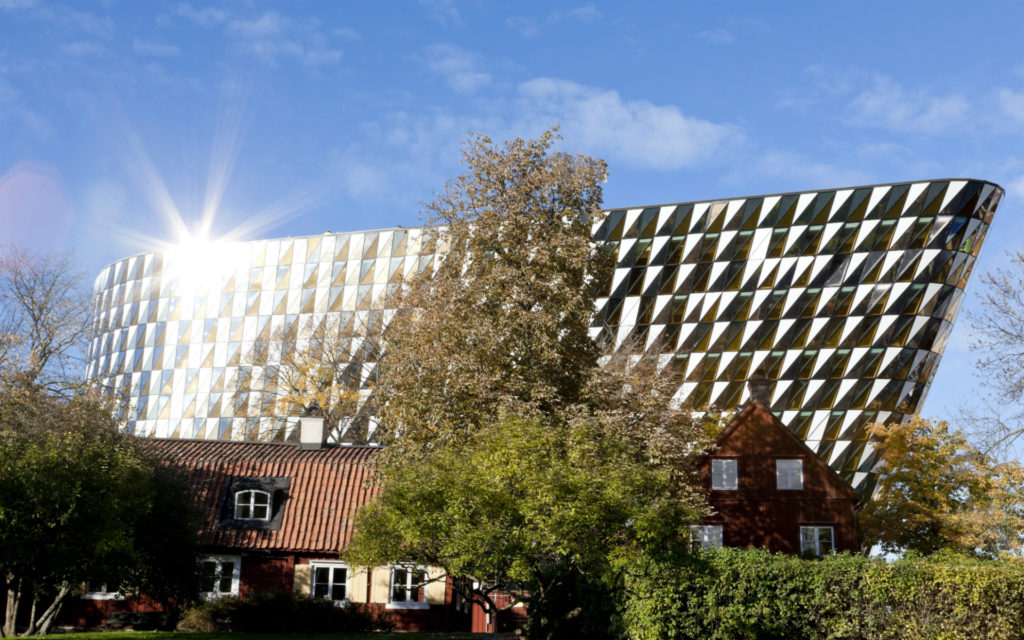
Many challenges facing European society are particularly pronounced in the urban areas, which is also often where the solutions to the challenges can be found. It is therefore imperative that an urban perspective is mainstreamed into the future budget and reasonable for cities and urban areas to have a have a major say in shaping it. This is the opinion of the Stockholm Region on the Financial Perspectives of the EU for the period after 2020.
Europe is today facing major challenges. The current refugee crisis, lingering unemployment and a growing inequality underline the importance of concerted action at EU level. But these crises have also been detrimental to citizens’ confidence in Europe. Against this background, it is more important than ever for the EU to focus its resources on cohesive and strategic initiatives, in particular since the budget is likely to be reduced following Brexit. Many challenges facing European society are particularly pronounced in the urban areas, which is also often where the solutions to the challenges can be found. It is therefore imperative that an urban perspective is mainstreamed into the future budget and reasonable for cities and urban areas to have a have a major say in shaping it.
Streamline and reform the cohesion policy of the EU
The cohesion policy of the EU is an important instrument for reducing social and economic disparities in Europe. It is also the main EU investment instrument to address common challenges and contribute to local and regional growth. Therefore, the Stockholm region believes that cohesion policy should apply to all regions in Europe. However, the policy must be reviewed and streamlined for the next programming period.
The current structure of the ERDF and the ESF as two funds governed by different rules and administered by different authorities has in several cases led to difficulties in implementing coherent strategic initiatives in the Stockholm region during the current programming period. A single fund would be significantly better placed to have a structural impact and to address the often-multifaceted issues of today and tomorrow.
The future cohesion policy must focus on activities that clearly contribute to facilitating both regional and local needs and the overall objectives of the EU. Measures and resources will have to be adjustable so as to cater for unforeseen situations, such as the large number of refugees of 2015-2016. It should also be possible to require that the Structural Funds reserved for vulnerable citizens in some countries actually are used to that end.
Considering the vital role of urban areas in moving socially, economically, ecologically and democratically sustainable development forward in Europe, the Stockholm region also considers that the part of the budget earmarked for sustainable urban development should increase. Cross-regional cooperation in cohesion policy would also gain from being simplified, for example, inter-city cooperation in different regions. Both nation-wide and Europe-wide. The same applies to urban rural cooperation, for example through targeted initiatives from the rural development program.
Given the complex challenges facing Europe, it is vital to have different types of funding opportunities under the cohesion policy of the EU. Financial instruments can be effective tools in this regard, however, it is not always profitable for local and regional actors to apply for loans from the financial institutions of the EU. In addition, in order to promote the use of financial instruments in the future, it is necessary to simplify the rules governing their use and to ensure compatibility with the jurisdiction of the beneficiaries.
The territorial cooperation arrangements should also be reviewed. In order to achieve strategic added value, transnational programmes, such as the Baltic Sea Region Programme, should focus only on a few well-defined region-specific challenges. For other areas of action, cooperation between cities, regions and countries in Europe should not be geographically confined, but based on common challenges and solutions.
Step up research, innovation and digitisation efforts in Europe
Europe is facing increased global competition in terms of skills, capital, establishments and investments. If the EU is to boost or maintain its competitiveness, more attention must be paid to excellent research environments and innovation. In this regard, the research and innovation programme of the EU provides a much-needed platform for cooperation between actors across Europe, and is a clear example of an area where EU funding brings real added value compared to national and regional initiatives.
Europe, and in particular the urban areas of Europe, have a unique leverage to compete in knowledge-intensive sectors, and currently boast a good research and innovation climate with a progressive rate of digitisation. All this contributes significantly to delivering growth and prosperity across Europe. However, in line with increased competition, it is imperative that efforts are further accelerated and more clearly directed towards major societal challenges in, for example, climate, energy, transport, digitisation or social sustainability, focusing on employment, integration and an ageing population.
The fact that different project ideas compete for funds allows the most relevant projects to be carried out with EU funding. In this context, cooperation between public actors, academia and industry must remain in focus. Sustainably growing smart cities are stimulated by this kind of cooperation and, in this regard, the research programme of the EU can fund important efforts.
Download PDF in English.
Download PDF in Swedish.